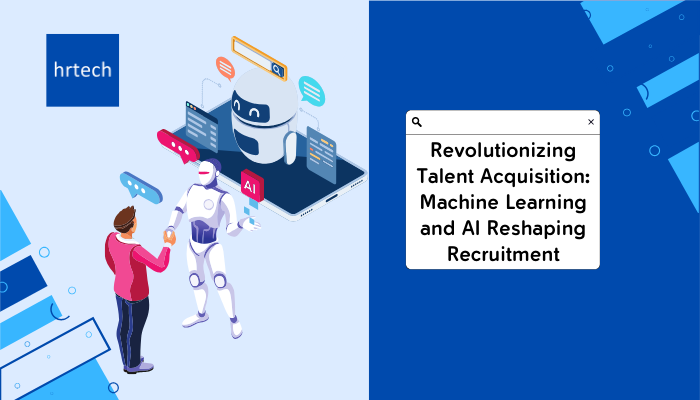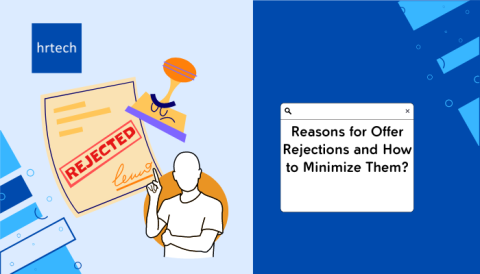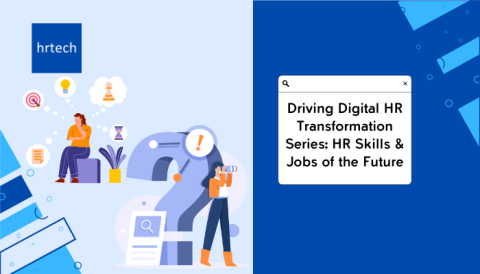The recruitment process has undergone significant changes over the past decade. Technology has played a significant role in making recruitment more efficient, and it’s now possible to automate many of the repetitive and time-consuming tasks.

The recruitment process has undergone significant changes over the past decade. Technology has played a significant role in making recruitment more efficient, and it’s now possible to automate many of the repetitive and time-consuming tasks. Machine learning and artificial intelligence (AI) have been at the forefront of this change, and they have transformed how organizations hire talent. This article explores the impact of machine learning and AI on recruitment and talent acquisition, and how they are shaping the future of recruitment.
Automating Recruitment with Machine Learning and AI
One of the most significant advantages of using machine learning and AI in recruitment is the ability to automate many of the processes involved. For example, AI-powered chatbots can screen candidates, answer their questions, and schedule interviews, freeing up HR personnel to focus on higher-level tasks. Automated resume screening is another area where machine learning and AI have made a big impact. Instead of manually sifting through resumes, algorithms can now identify and rank the most relevant candidates based on keywords and other criteria. This not only saves time but also reduces the risk of human bias in the selection process.
Improved Candidate Sourcing
Finding the right candidates is one of the biggest challenges of the recruitment process. However, machine learning and AI have made it possible to improve candidate sourcing significantly. AI-powered recruitment software can crawl the web and social media platforms to identify potential candidates based on keywords, location, and other criteria. This has made it easier for organizations to find passive candidates who may not be actively looking for new opportunities but could be a good fit for the company. Additionally, machine learning algorithms can analyze candidate data to identify patterns and predict which candidates are more likely to succeed in a particular role.
Reducing Bias in Recruitment
Human bias has been a longstanding issue in recruitment, with unconscious biases often influencing hiring decisions. However, machine learning and AI have the potential to eliminate bias from the recruitment process. For example, by removing identifying information such as names and addresses from resumes, algorithms can prevent recruiters from being influenced by their subconscious biases. Additionally, machine learning algorithms can analyze past hiring decisions to identify patterns of bias and help recruiters make more objective decisions.
Enhancing the Candidate Experience
The candidate experience is an essential aspect of recruitment, and it can significantly impact an organization’s reputation. Machine learning and AI have made it possible to enhance the candidate experience by providing personalized and engaging interactions. Chatbots can be programmed to answer candidate questions in real-time, while AI-powered recruitment software can recommend relevant job openings based on a candidate’s skills and experience. Additionally, machine learning algorithms can analyze candidate data to identify their preferences and personalize the recruitment process accordingly.
Predictive Analytics for Talent Acquisition
One of the most significant advantages of using machine learning and AI in recruitment is the ability to make data-driven decisions. Predictive analytics has become increasingly popular in talent acquisition, with algorithms analyzing candidate data to identify patterns and predict which candidates are more likely to succeed in a particular role. This not only saves time but also improves the quality of hires by identifying the best candidates more efficiently. Additionally, predictive analytics can help organizations identify skill gaps and develop targeted training programs to address them.
Challenges and Limitations of Using Machine Learning and AI in Recruitment
While machine learning and AI have the potential to revolutionize the recruitment process, there are also challenges and limitations to their use. For example, algorithms may be biased if the data used to train them is biased. Additionally, there is a risk that candidates may feel dehumanized if they interact exclusively with chatbots and automated systems. Furthermore, machine learning and AI may not be suitable for all types of roles, and there is a risk that they could replace human judgment in the recruitment process.
The Role of AI in Employee Background Checks
The role of AI in employee background checks has become increasingly important in recent years. Traditionally, employee background checks have involved manually reviewing public records, criminal history, credit reports, and other relevant information. This process can be time-consuming, expensive, and prone to human error. However, with the advent of AI, the background check process can be automated and streamlined.
AI-powered tools can analyze vast amounts of data quickly and accurately, making it possible to perform comprehensive background checks in a matter of minutes. These tools can also flag potential issues that may be missed by human reviewers, such as discrepancies in employment history or criminal records. Additionally, AI can help reduce bias in the background check process by eliminating identifying information such as names and addresses from reports.
Conclusion
Machine learning and AI are transforming the recruitment process and shaping the future of talent acquisition. The advantages of using these technologies are clear, but there are also challenges that need to be addressed to ensure their ethical and effective use. Organizations need to ensure that their algorithms are free from bias and that they are used to enhance human decision-making rather than replace it. Additionally, there is a need for transparency in how these technologies are used in recruitment, and candidates should be made aware of how their data is being used and protected.
Despite these challenges, the potential benefits of using machine learning and AI in recruitment are significant. Organizations that embrace these technologies can save time, improve the quality of hires, and enhance the candidate experience. As the recruitment landscape continues to evolve, it’s clear that machine learning and AI will play a central role in shaping the future of talent acquisition. By embracing these technologies responsibly, organizations can stay ahead of the curve and attract the best talent to their teams.
About the Author:
Veremark provides fast, accurate, secure and scalable employment background checks that can be used by all industries and sectors and by companies of all sizes. Our employee checking service is completely customisable, so you can carry out a one-off check for a single employee or perform bulk checks on numerous candidates at once.




